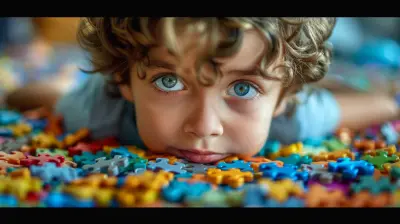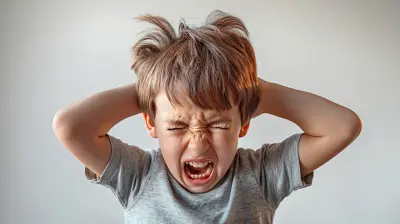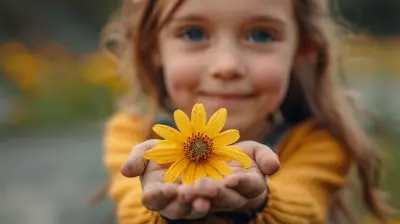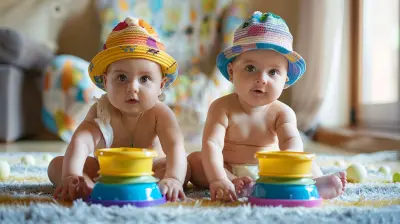Social Development in Toddlers: Building Early Friendships
9 June 2025
The toddler years are kind of like the opening credits of a movie—setting the stage for everything that comes next. From the moment your little one takes their first wobbly steps or utters their first word, something magical starts to happen—they begin figuring out the world around them. And a huge part of that world? Other people.
One of the most important (and adorable!) milestones in this stage is social development. Yes, we’re talking about those first giggles with peers, sharing toys (or... not), parallel play, and the beginnings of little friendships that melt our hearts—and sometimes test our patience.
In this article, we're diving deep into how social development works during toddlerhood, why early friendships matter more than you might think, and how you, as a parent or caregiver, can help your tiny human conquer these new social frontiers.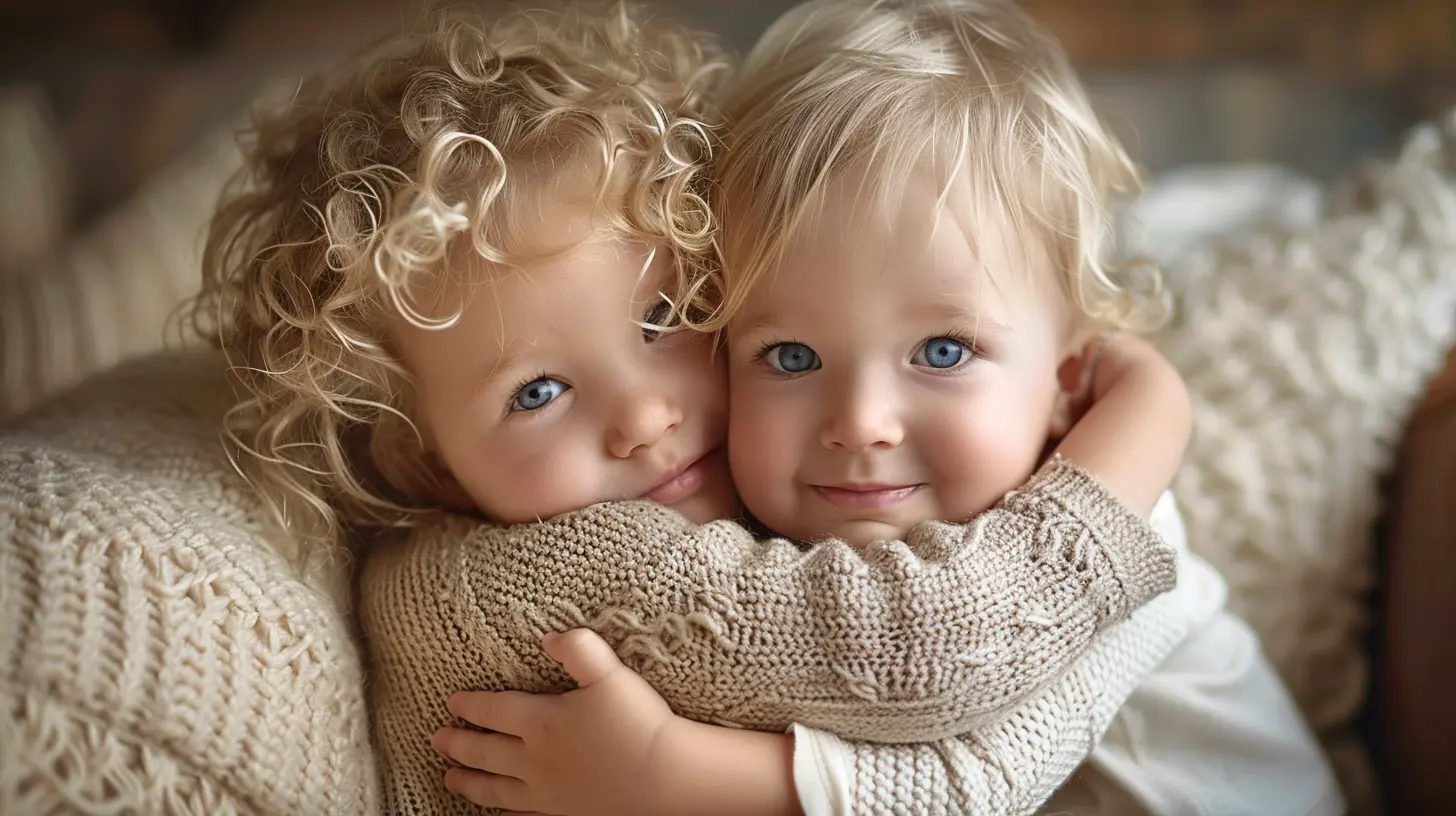
What Is Social Development in Toddlers?
Social development is basically how your toddler learns to interact with others. It’s their journey from being mainly self-focused to building relationships, showing empathy, learning how to communicate feelings, and understanding the concept of give and take.Sounds like a lot, right? It is. But remember, toddlers don’t just suddenly “get it.” Social development is like learning to ride a bike—it takes time, a few falls, and lots of practice.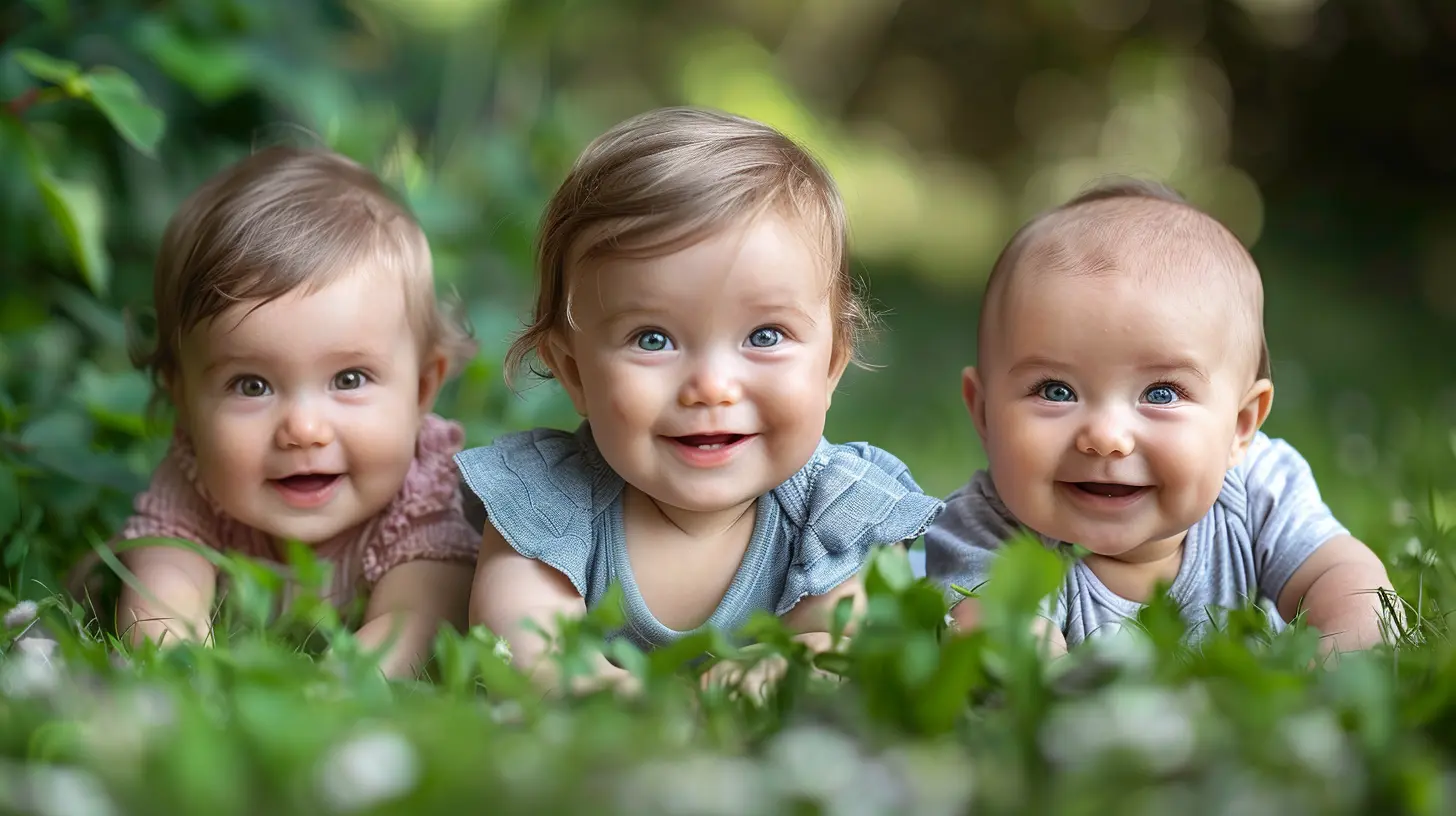
Why Early Friendships Matter
You might be wondering, “Do these pint-sized relationships actually count?” Spoiler alert: they do!Friendships during toddlerhood aren’t just cute photo ops. They’re the building blocks of emotional intelligence, self-confidence, and effective communication down the road.
Here’s why these tiny connections are so important:
- Build empathy: Learning to care when a friend cries or celebrates when they succeed is huge.
- Strengthen language skills: Talking (or babbling) with peers boosts vocabulary.
- Teach conflict resolution: Yes, even a toy tug-of-war teaches problem-solving.
- Foster independence: Little buddies help toddlers step out from mom or dad’s shadow.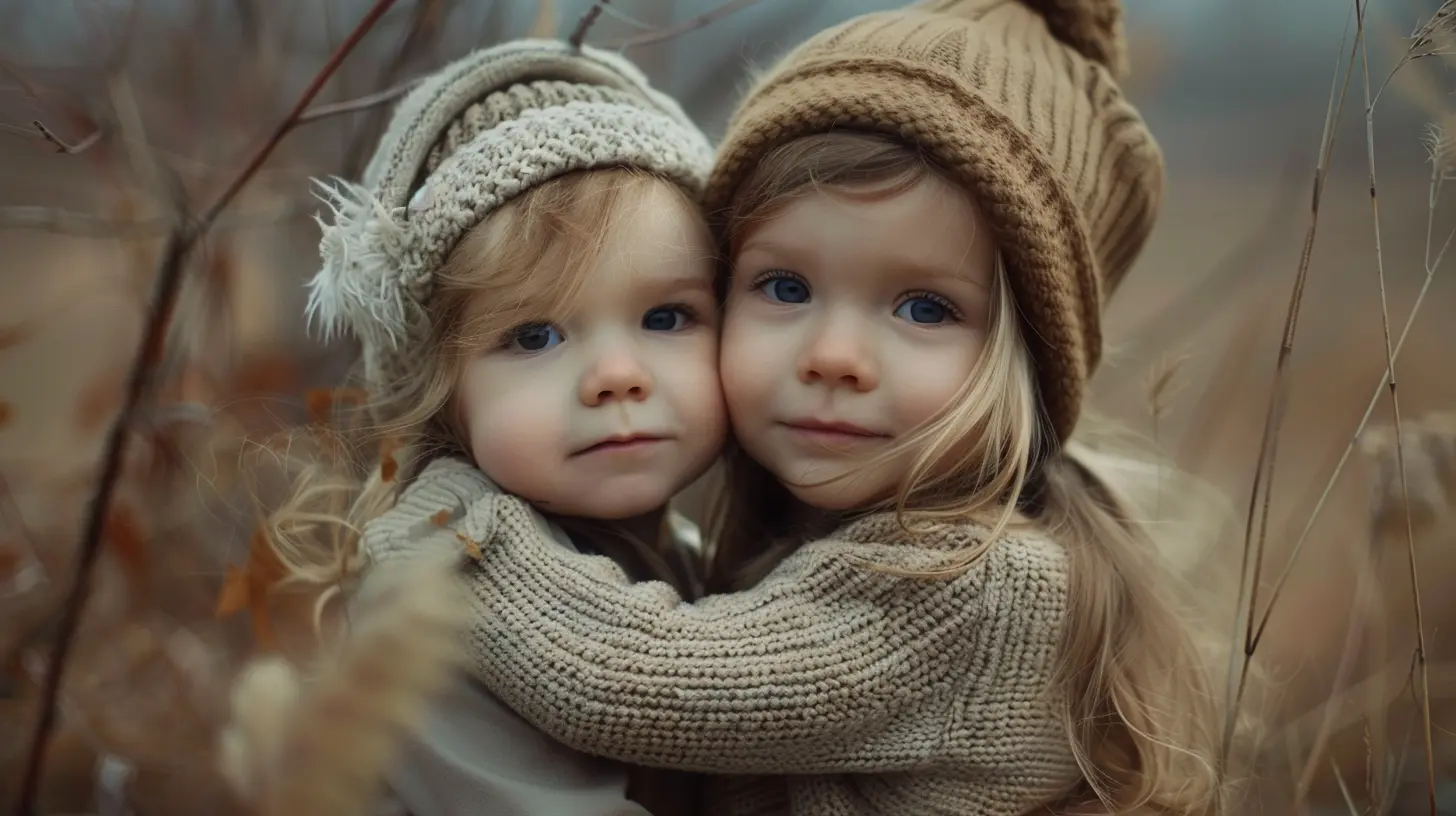
What Does Typical Social Development Look Like?
Okay, so what should you expect from your toddler in terms of social growth? Let’s break it down by age ranges.12–18 Months: Lonely Explorers
At this stage, your toddler is mostly focused on themselves. That’s totally normal. They may show interest in others, but they don’t actually “play” together yet. Instead, you’ll see:- Watching other kids (but not joining in)
- Grabbing toys (sharing is not in the vocab yet)
- Smiling or babbling at peers
18–24 Months: Parallel Play
Here comes the magic of parallel play—where two toddlers play side-by-side but not exactly with each other. Think of it like two artists working on their own canvases next to one another.- Mimicking what others are doing
- Starting to show preference for certain playmates
- Occasional interaction like handing a block… or taking one back
2–3 Years: First Real Friendships
By now, toddlers start to recognize familiar faces and may even use the word “friend.” This is when social development really starts to bloom.- Engaging in simple interactive play (think: tag or chasing games)
- Expressing affection (“I like Emma!”)
- Starting to understand sharing (on good days, anyway)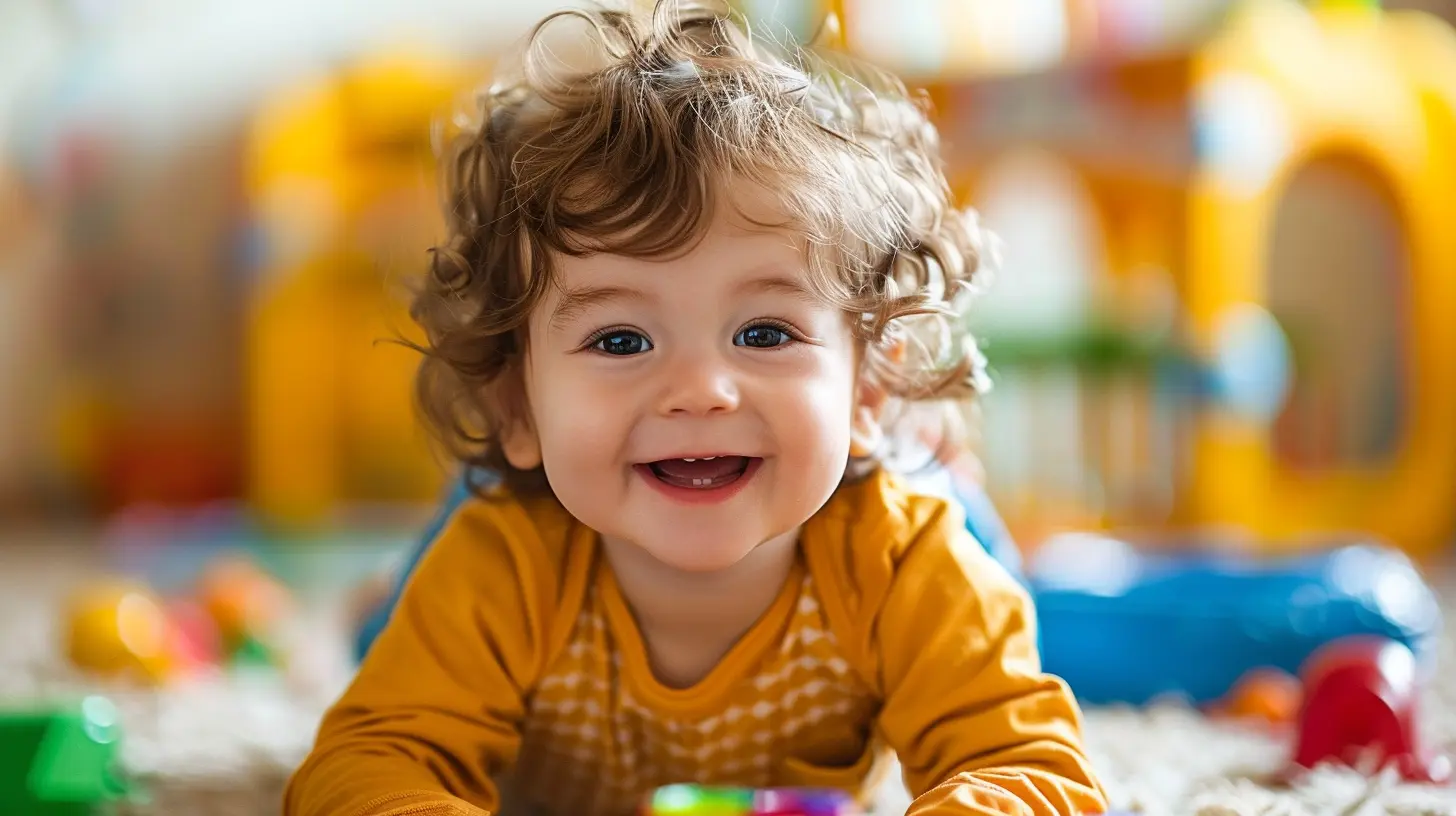
How Do Toddlers Learn Social Skills?
Good question! Toddlers are like little sponges—they soak up everything. But unlike language or motor skills, social skills are learned mostly through experiences, not instruction.Here’s how they get the hang of it:
1. Observation
Ever noticed your toddler watching you intently when you’re chatting with a friend or comforting someone? That’s them learning. They mirror what they see.2. Play
Play is the vehicle for learning at this age. Through play, they practice scenarios, try out roles, and figure out how to interact with others.3. Gentle Correction
When we guide toddlers through social hiccups (“Let’s take turns,” or “Can you say sorry?”), we’re helping them understand social norms.4. Repetition
Like any skill, social growth needs practice. The more playdates, park visits, and group classes they experience, the more confident they’ll get.Ways Parents Can Encourage Early Friendships
Let’s be honest. Toddlers don’t always make the best first impressions. There’s usually some grabbing, occasional crying, and maybe a snack-related meltdown. That’s okay! Early friendships need a little help from the sidelines (that’s you!).1. Facilitate Playdates
Don’t expect toddlers to become BFFs overnight, but arranging regular playdates offers consistent opportunities to build familiarity and trust.Pro Tip: Keep it short and sweet. 30–45 minutes is plenty for toddlers.
2. Model Social Behavior
Be your child’s biggest example. Greet others warmly, show kindness, take turns with them—it all adds up. They’re watching how you interact.3. Narrate the Social World
Use everyday moments to talk about feelings and friendships. “Look, Alex is sharing his truck. That’s so kind!” This helps them connect action with meaning.4. Teach Empathy
If your toddler sees another child crying, you might say, “I think she’s sad. How can we help?” This builds emotional awareness.5. Read Books About Friendship
Stories can be powerful tools for showing social dynamics in action. Books like Llama Llama Time to Share or How Do Dinosaurs Play with Their Friends? are great examples.Dealing with Social Struggles: What’s Normal?
Let’s get real: kids fight. Sharing is hard. Toddlers bite. It’s all part of the social learning curve.Here’s what usually falls in the “normal” category:
- Occasional hitting or biting (especially before age 3)
- Meltdowns over sharing
- Clinging to familiar adults instead of playing with peers
- Playing alone or watching others instead of joining in
Most of the time, these behaviors fade with maturity and gentle guidance. But if your child seems withdrawn, shows little to no interest in interaction by age 3, or gets aggressive frequently, it’s worth chatting with your pediatrician for guidance.
Signs of Healthy Social Development
Curious if your toddler’s on track? Here are some green flags to look for:- Shows interest in other kids
- Enjoys group activities (even if it’s just circle time)
- Tries to communicate feelings or ideas
- Follows simple social rules with help
- Uses pretend play (e.g., feeding a doll or pretending to call grandma)
Remember, every child is different. Some are social butterflies; others take a little longer to warm up. And that’s completely okay.
Tips for Supporting Shy or Introverted Toddlers
Not all toddlers are eager to be front and center. If your child prefers to hang back, that’s perfectly normal. Still, you can help ease them gently into social situations without pushing too hard.- Start small: Try one-on-one play with a familiar child in a quiet space.
- Prep them: Let them know what to expect before social events.
- Stay close, but not too close: Be their safety net, but give them room to try.
- Celebrate tiny victories: A wave, a smile, a shared toy—it all counts.
Encouraging Friendship Through Play
Let’s face it: toddlers don’t care about “social skills” per se—they just want to have fun. So, create an environment that makes playing together irresistible.Here are some friendship-building play ideas:
- Arts and crafts: Messy means magic! Hand painting, coloring, or building together encourages cooperation.
- Simple group games: Think duck-duck-goose or ring-around-the-rosie.
- Pretend play: Dress-up, play kitchens, or puppet shows work wonders.
- Building blocks or trains: These promote shared creativity and collaboration.
Bonus tip: Keep activities open-ended and let the imagination lead. Less pressure, more bonding.
The Role of Childcare and Preschool
If your toddler attends daycare or preschool, they’re getting tons of social exposure. These environments are goldmines for practicing group dynamics, following rules, and (hopefully) making their first “best friend.”Talk to teachers or caregivers about how your child interacts with peers. They can offer insights and tips tailored specifically to your kiddo.
Final Thoughts
Social development in toddlers isn’t about forcing friendships or ticking boxes. It’s about giving your child the space, support, and opportunities to connect in ways that feel right to them. Whether your little one is the life of the toddler party or a quiet observer slowly warming up, every interaction helps build the confidence, empathy, and communication skills they'll carry for life.So, the next time you see two toddlers giggling over a pile of dirt, don’t dismiss it as just play. That’s friendship in its purest, most delightful form.
And hey—celebrate it. Because watching your child take their first steps toward relationships with others? That’s one of parenting’s most heartwarming milestones.
all images in this post were generated using AI tools
Category:
Toddler MilestonesAuthor:

Max Shaffer
Discussion
rate this article
3 comments
Ezra Newman
Thank you for this insightful article! It's so important to nurture social skills early on. I appreciate the practical tips for fostering friendships in toddlers—definitely going to implement some of these ideas with my little one!
June 17, 2025 at 4:15 AM

Max Shaffer
Thank you for your kind words! I'm glad you found the tips helpful for fostering friendships in toddlers. Best of luck implementing them!
Zarek Cruz
In the delicate dance of toddlerhood, friendships blossom in unexpected ways. Shadows of unspoken connections flicker, hinting at deeper bonds formed in silence. What secrets do these tiny companions share, and how might their early alliances shape the future of their hearts?
June 12, 2025 at 4:04 AM

Max Shaffer
Indeed, early friendships in toddlers lay the foundation for emotional intelligence and social skills, shaping their future relationships in profound ways.
Will Weber
Absolutely loved this article! It's fascinating to see how early friendships shape our little ones. Encouraging playdates and social interactions is so important. Every small step they take today lays the groundwork for their future relationships. Great insights! Thanks for sharing!
June 9, 2025 at 4:00 AM

Max Shaffer
Thank you! I’m glad you enjoyed the article. Early friendships truly play a crucial role in shaping our children's futures!
